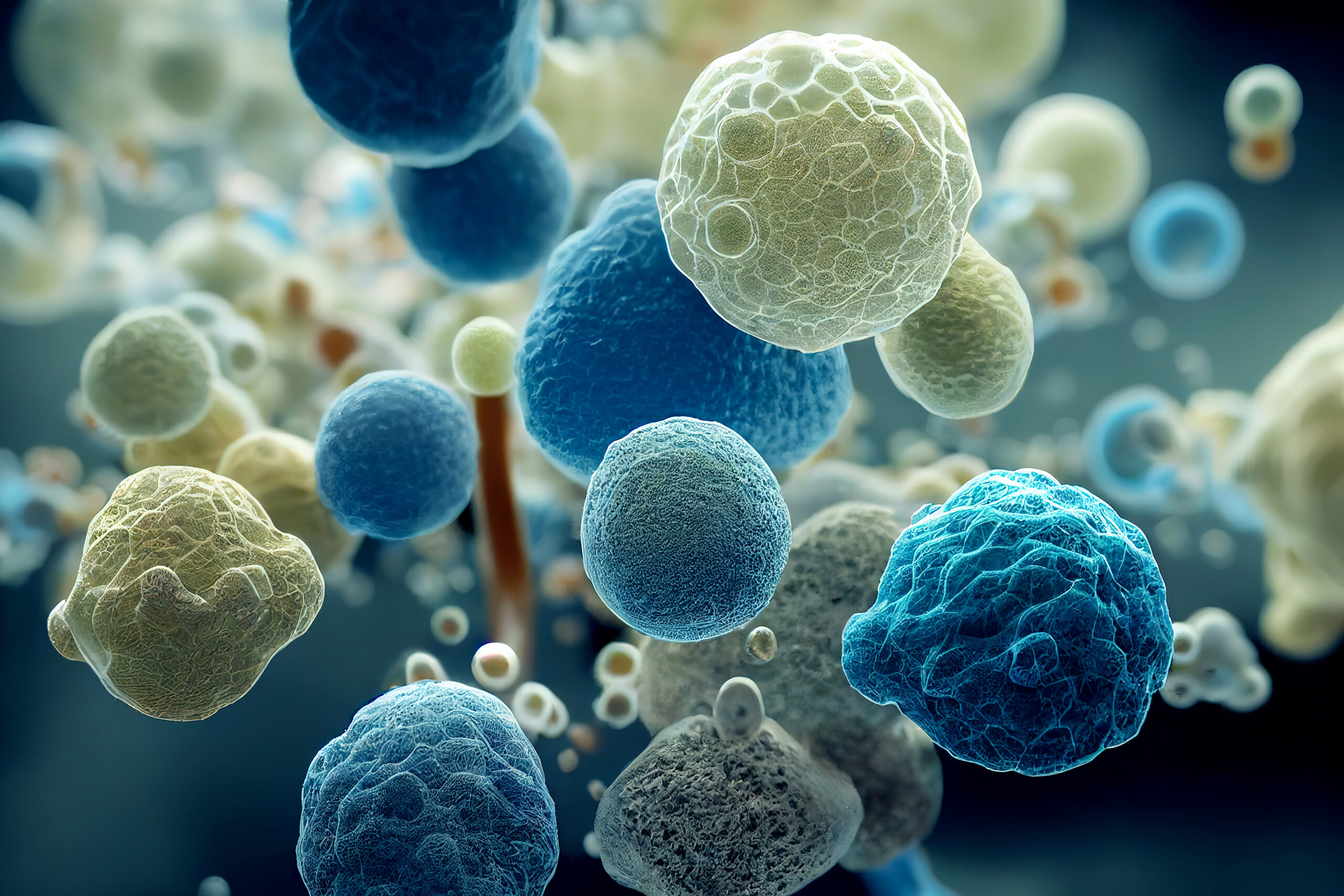Solutions
Benzalkonium Chloride FAQ
Our pharma grade Benzalkonium Chloride
Which antimicrobial products does Novo Nordisk Pharmatech offer?
We offer Benzalkonium Chloride (BKC/BAC/BAK/BZK) in full cGMP for API grade, for use both as API and excipient in formulations requiring a broad-spectrum antimicrobial. Our BKC is offered in a variety of product forms and packing solutions, meeting demands for different drug product forms and volumes. BKC is effective against gram + and – bacteria, fungi, and enveloped viruses. If you are looking for supporting documentation, have a look at our white papers.
Can you help me with my product formulation?
We can help you choose the right Benzalkonium Chloride product for your formulation. We also work with external specialists to support with specific formulation questions or needs.
Do you keep stock for all Benzalkonium Chloride products?
Yes, we strive to keep stock of all products, except for large sizes such as the 1000kg size which we preferrably manufacture to order.
What is the difference between Cetrimide, CTAB (Cetrimonium Bromide) and Benzalkonium Chloride?
Cetrimide and CTAB are chemically very similar. They are both quaternary ammonium compounds (Quat) and contain a bromide ion. The Cetrimide alkyl chain length consists of 14 carbons (C14), while CTAB consists of 16 carbons (C16). Cetrimide is described in the British Pharmacopoeia (BP) and Ph. Eur. CTAB is only described in USP/NF.
Benzalkonium Chloride (BKC/BAC/BAK/BZK) is also a Quat, thus in the same family as Cetrimide and CTAB. The main differences are the chloride ion instead of bromide, and that BKC it is made of a mixture of alkyl chain lengths. Our standard BKC products contain C12 and C14, which in combination offer a good, broad-spectrum antimicrobial effect, while maintaining a good solubility in water. Benzalkonium Chloride is considered as being slightly more effective than Cetrimide and CTAB and active over a wider pH range.
What is the difference between crystalline or powder form Benzalkonium Chloride and gel or paste form BKC/BAC/BAK/BZK)?
Crystalline or powder Benzalkonium Chloride (BKC) can be manufactured in the same way as other physical forms of BKC. The difference is in the last steps of manufacturing, where a crystallization step in a solvent (e.g., acetone) is added, and the product is dried afterwards to produce a powder.
BKC in gel or paste is manufactured without alcohol solvents and the assay of the product is slightly lower than in the powder BKC, due to the presence of residual water.
Novo Nordisk Pharmatech offers BKC in gel/paste form and as aqueous solutions in pharmaceutical grade water.
Both product forms are used in the same drug formulation types.
Can I obtain product samples for qualification and validation ?
Yes, we offer samples in 30g or 30ml sizes. Please contact us to request the needed quantity and batches.
How do you ensure the quality, purity, and consistency of Benzalkonium Chloride?
The uniform quality of our products – and of our customers’ products – is ensured by our efficient quality management system, dedicated equipment, well-established and fully validated processes, and rigorous laboratory quality control. Based on 30+ years’ experience in GMP manufacturing, we make pharmaceutical grade BKC in accordance with the cGMP Guide ICH Q7 for Active Pharmaceutical Ingredients (APIs), the highest available quality standard in the industry. We are inspected by the Danish Medicine Agency (DMA), who share their results with the US FDA. Certificates are available upon request.
What type of raw materials do you use to manufacture Benzalkonium Chloride?
We only use synthetic, TSE/BSE-free raw materials under approved specifications from qualified suppliers. We regularly audit our critical suppliers.
We offer a complete range of declarations supporting the safety of our raw materials and finished products.
How do you ensure safe delivery and security of supply?
Our products are sold in more than 70 countries across the globe. We are supported by a network of local distributors, giving our customers access to local supply and point of contact. Our products are distributed in line with EU GDP and Known Consignor, and as part of our GMP commitment, product traceability is of the essence. We ensure traceability from our raw materials and all the way to end users.
Following GDP, safe delivery is ensured by thorough personnel training, quality agreements with freight forwarders and logistic suppliers, and risk-assessed, validated transportation routes and methods.
Do you use re-test?
No. All our Benzalkonium Chloride products have a fully documented 60 months (5 years’ shelf life) according to ICHQ1A. Our products have an expiry date set 5 years after the date of manufacturing.
Can you support with analytical requests?
While we do not perform analytical testing for external partners or customers, our experienced chemists are happy to support with questions regarding raw material analyses for BKC.
For analytical challenges with finished formulations, we can refer to our white paper on Analytical challenges (when using BKC) or we can forward your inquiry to external experts.
What about sustainability?
Novo Nordisk Pharmatech is highly committed to sustainability and have ambitious goals for the future, where we aim to continuously improve:
– Zero CO2 from own operations and transport by 20230
– All supply based on 100% renewable power by 2030
– Zero production waste to landfill by 2030
– Net zero emissions by 2045
You can download our latest Annual Report here.
Is BKC an antifungal?
Yes, BKC is effective against fungi species such as Candida, Aspergillus, Fusarium, etc.
Its effects are documented in several publications, for example:
Med Mycol. 2002 Apr;40(2):201-8. DOI 10.1080/mmy.40.2.201.208
Poster: Time-kill study by the American Cleaning Institute (ACI). June 23, 2019, CIV-200.
Journal of Food Science & Technology (July–August 2011) 48(4):515–519, DOI 10.1007/s13197-011-0268-5
Is BKC and antiviral?
Yes, BKC is effective against a wide range of enveloped viruses such as adenoviruses, influenza, SARS-CoV, herpes simplex, heptatitis A and B, and more.
It is an effective antiviral at low concentrations, often between 0.1 and 0.5%, and is recognized by several health agencies as effective in preventing COVID.
You can find more information in our Article on the effect of BKC against viruses. You can find the article here.
Is BKC safe?
Yes. BKC is allowed for use in pharmaceuticals. Over time, several antiseptics have been banned, though BKC remains accepted and recommended by Health authorities.
BKC is not mutagenic, carcinogenic and has not effect on reproduction and it is not bioaccumulative. Please refer to our SDS.
BKC is known to cause irritation, specially for products for prolonged or chronic use. Here the following EMA guidelines can provide guidance:
EMA/CHMP/352187/2012 ‘Benzalkonium chloride used as an excipient.’
EMA/CHMP/495737/2013 ‘Questions and answers on benzalkonium chloride used as an excipient in medicinal products for human use’
Since the US FDA has requested manufacturers to provide up-to-date information on the effcicacy and safety of antiseptics remaining on the market, supporting information can also be found in these two litterature reviews:
Environmental Toxicology and Chemistry—Volume 41, Number 12—pp. 3095–3115, 2022 (Ecological Risk Analysis for Benzalkonium Chloride, Benzethonium Chloride, and Chloroxylenol in US Disinfecting and Sanitizing Products)
Journal of Applied microbiology, 23 July 2022. DOI: 10.1111/jam.15739. (Review article: Impact of benzalkonium chloride, benzethonium chloride and chloroxylenol on bacterial antimicrobial resistance).
How does BKC compare with other antimicrobials?
BKC is for many applications the antimicrobial of choice, due to a combination of useful properties:
- Proven bactericide against a broad spectrum of microorganisms: Gram + and – & acid-fast bacteria, yeast, moulds, enveloped viruses
- Effective through a wide pH range (4-10/11)
- Very stable at various temperatures and pH
- Non-volatile
- Cost effective due to activity at low concentrations
- Strong surfactant supporting active ingredient delivery and offering residual activity
- Safe to use, non-flammable and widely available
- Does not add colour or odour to finished formulations
- Soluble in both aqueous and oily phases
If you are interested in specific comparisons, have a look at our technical White papers.
Is BKC the same as BAK/BAC/BZK?
Yes. The name Benzalkonium chloride is often shortened to either BKC, BAC, BAK or BZK. It is also known as “alkyldimethylbenzylammonium chloride” or ADBAC.
Though the exact contents in Benzalkonium Chloride can vary between manufacturers, for example in terms of alkyl homolog proportions.
Any challenges with BKC to be aware of?
Being a strong surfactant, BKC can adsorb to surfaces and cause challenges during e.g., analytical recovery.
BKC is a cationic molecule, therefore mixing it with anionic compounds can neutralize it. It can also form complexes with some compounds.
In our white papers, you can find examples of ingredients that can either reduce or enhance the effect of BKC, and get help if you encounter Analytical challenges.
Where can I use BKC?
Benzalkonium Chloride is a strong surfactant and a powerful broad-spectrum antimicrobial.
It can be used in any formulation where microbial control is needed, either to preserve the formulation or as the main activity of the product. Its surfactant properties provides residual activity and can facilitate transportation or distribution of APIs.
Countless OTC and Rx formulations for ophthalmic, nasal, oral and topical applications currently on the market contain BKC. For inspiration, have a look at our Applications pages.
How can you help reduce raw material-associated risks?
When you work with Novo Nordisk Pharamtech, you work with a true cGMP partner. We have the certificates to prove it.
You can expect working with a supplier dedicated to pharma ingredients, providing the required compliance documentation and ensuring that you receive Change Notifications, have access to Quality Agreements, inspections, questionnaires, etc.
This combined with pharmacopoeia and ICH compliance, batch consistency, support after purchase, regulatory support and more, we are a partner that you can count on for minimizing your risks.
We embrace and abide by the requirements laid out in the USP Chapter 1043 for Supplier Qualification, every day, without compromise
Limitations for BKC use?
No. There are no set authority limits for using BKC in pharmaceuticals. It is nevertheless the responsibility of the drug manufacturer to limit the contents of preservatives in their products by minimizing their presence to the lowest level, still allowing for proper antimicrobial control.

Where can I learn more?
For more information about our BKC products, please contact us or visit our BKC product page.
Explore more about Benzalkonium Chloride

Benzalkonium Chloride (BKC)
Reduce the risks of contamination with our Benzalkonium Chloride that’s the best for ophthalmic, nasal, topical and oral applications.

BKC insights
Discover webinars, videos and whitepapers showcasing the broad antimicrobial effects of BKC against bacteria, yeast, mold, and enveloped viruses.

BKC applications
Quaternary Ammonium Compounds, also known as BKC, have a long history of use in the pharmaceutical industry, where their broad antimicrobial effect against bacteria, yeast,

BKC 10 reasons why
Reduce the risks of contamination with our Benzalkonium Chloride that’s the best and safest antimicrobial for the pharmaceutical, medical device and personal care industries.